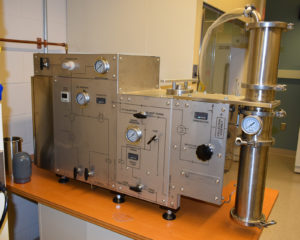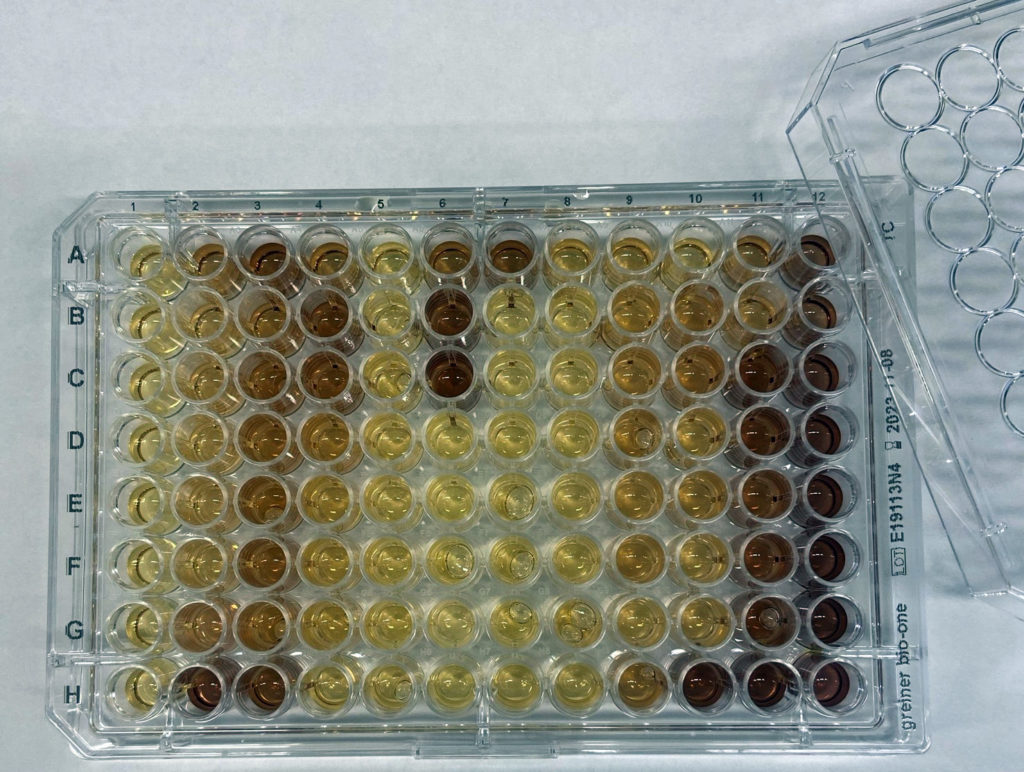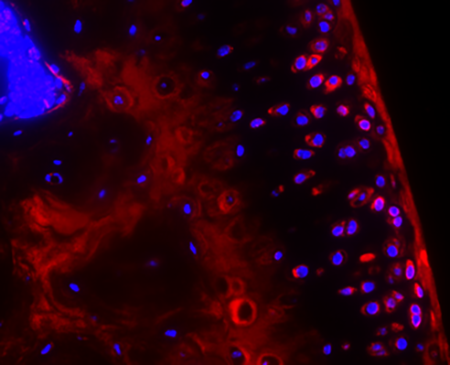
The background image is Shown is a bottle of hemp oil with a dropper above it, with a blurred background of other medical marijuana products
The Penn State Medical Marijuana Academic Clinical Research Center (ACRC) will become an internationally recognized expert in the benefits and dangers of medicinal cannabinoids and medical cannabis.
The goal of the center is to support the development of medical marijuana pre-clinical and clinical research and provide scientific evidence on the utility of medical cannabis. Currently, there are more than 30 researchers engaged in cannabis research within the ACRC; these researchers are divided into two divisions, a basic science division and a clinical science division.
Penn State College of Medicine was recognized as a potential ACRC site with the passage of ACT 16 in 2016, which legalized medical marijuana in Pennsylvania.
A key provision of this act was to “promote high-quality research” on medical marijuana.
In May of 2018, Penn State College of Medicine was one of eight universities approved by Gov. Tom Wolf as a Certified Academic Clinical Research Center. In June 2019, the Penn State College of Medicine ACRC, in a relationship with PA Options for Wellness, was one of the first three centers approved by the Commonwealth of Pennsylvania.
Director: Kent Vrana, PhD, Elliot S. Vesell Professor, Department of Pharmacology
Scientific Director: Wesley M. Raup-Konsavage, PhD, Assistant Professor, Department of Pharmacology
The basic science division utilizes pre-clinical models, such as in vitro studies and rodent models, to explore the potential therapeutic uses of cannabinoids for a variety of disease. Current projects are exploring the efficacy of cannabinoids or cannabis to treat cancer, acute and chronic pain, anxiety, high blood pressure and post-traumatic stress disorder (PTSD). Additional research within this group focuses on the chemistry of cannabinoids including pharmacokinetics, receptor binding and the development of novel cannabinoid-based compounds. These preclinical data will help to steer clinical research projects.
The basic science division utilizes pre-clinical models, such as in vitro studies and rodent models, to explore the potential therapeutic uses of cannabinoids for a variety of disease.
Current projects are exploring the efficacy of cannabinoids or cannabis to treat cancer, acute and chronic pain, anxiety, high blood pressure and post-traumatic stress disorder (PTSD).
Additional research within this group focuses on the chemistry of cannabinoids including pharmacokinetics, receptor binding and the development of novel cannabinoid-based compounds. These preclinical data will help to steer clinical research projects.
The clinical science division focuses on examining the benefits and potential harm of medical cannabis use for the current state-approved medical conditions. Currently, there are two teams within this division. The first team is focused on health outcomes in patients currently taking medical marijuana for the treatment of state-approved conditions, with special attention on anxiety, post-traumatic stress disorder and pain. The second team focuses on clinical trials and they will be conducting double blind, placebo-controlled studies on the efficacy of cannabis to treat medical conditions and reduce reliance on opioids for pain.
Cannabidiol and Management of Endometriosis Pain The study team will be looking at the effects of cannabidiol (CBD) in patients with endometriosis. It is believed that CBD will improve both pain and quality of life. The study will last a total of 12 weeks and involve several onsite visits in addition to daily pain assessments. Contact: Kristin Riley, MD. Learn more
The clinical science division focuses on examining the benefits and potential harm of medical cannabis use for the current state-approved medical conditions.
Currently, there are two teams within this division. The first team is focused on health outcomes in patients currently taking medical marijuana for the treatment of state-approved conditions, with special attention on anxiety, post-traumatic stress disorder and pain. The second team focuses on clinical trials and they will be conducting double blind, placebo-controlled studies on the efficacy of cannabis to treat medical conditions and reduce reliance on opioids for pain.
Cannabidiol and Management of Endometriosis Pain
The study team will be looking at the effects of cannabidiol (CBD) in patients with endometriosis. It is believed that CBD will improve both pain and quality of life. The study will last a total of 12 weeks and involve several onsite visits in addition to daily pain assessments.

Produces extracts from cannabis (or other dried plant material) using high pressure liquid CO2. This has the benefit of producing an extract that does not contain a solvent, because after the plant material is extracted, the CO2 quickly converts to a gas, leaving behind pure extract. This process is the most widely utilized in the hemp and medical marijuana industry.

A library of approximately 500 synthetic cannabinoids and another library with approximately 60 endogenous cannabinoids can be used for in vitro screening of diseases and disease pathways. There is also a growing list of in house developed cannabinoid-based compounds created by the Organic Synthesis Core Facility.

A number of other reagents are available for researchers looking to start work in the cannabis field. These include antibodies and RT-PCR probes to the major cannabinoid receptors, receptor agonists and antagonists and a small supply center for research team members.